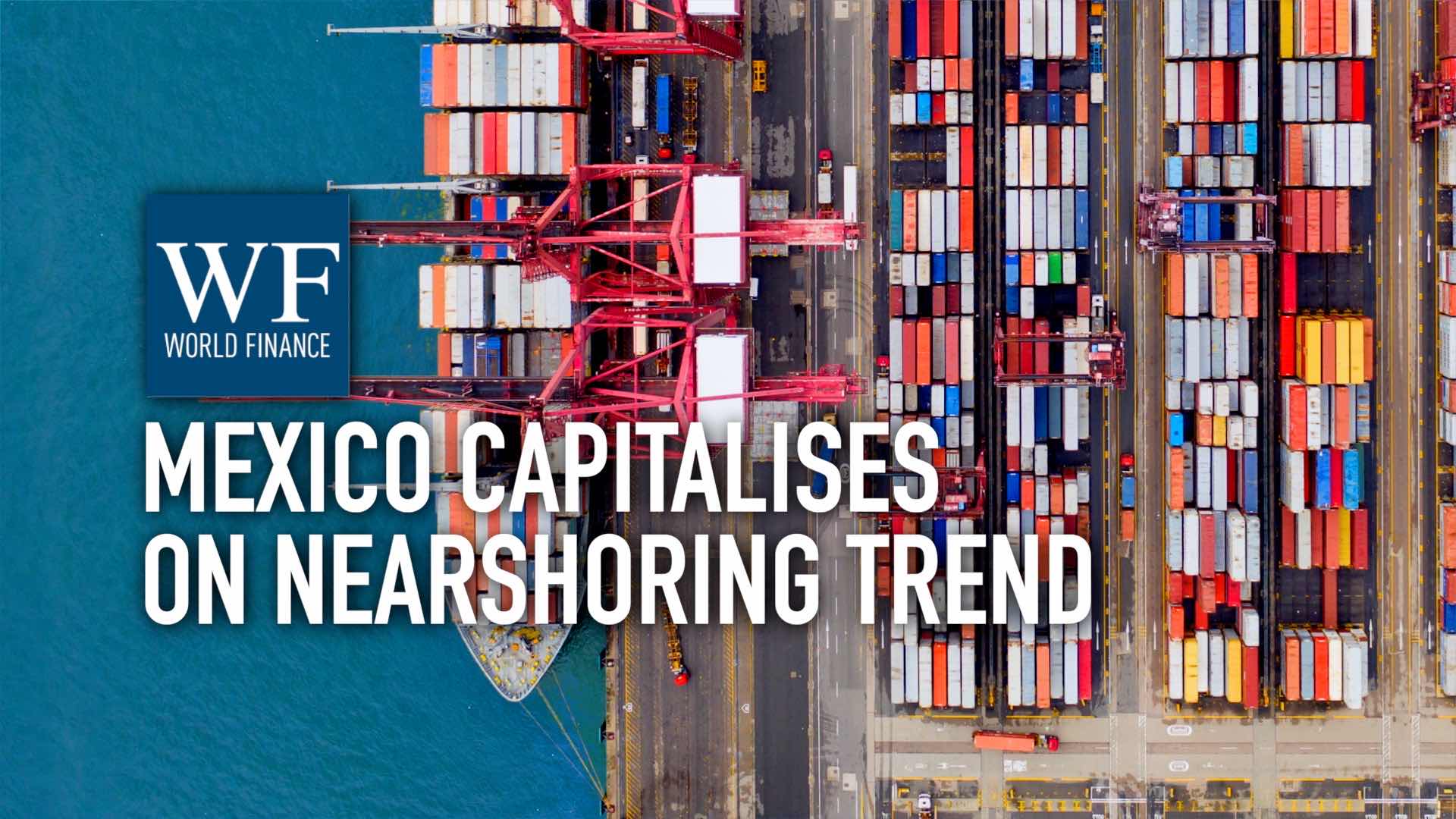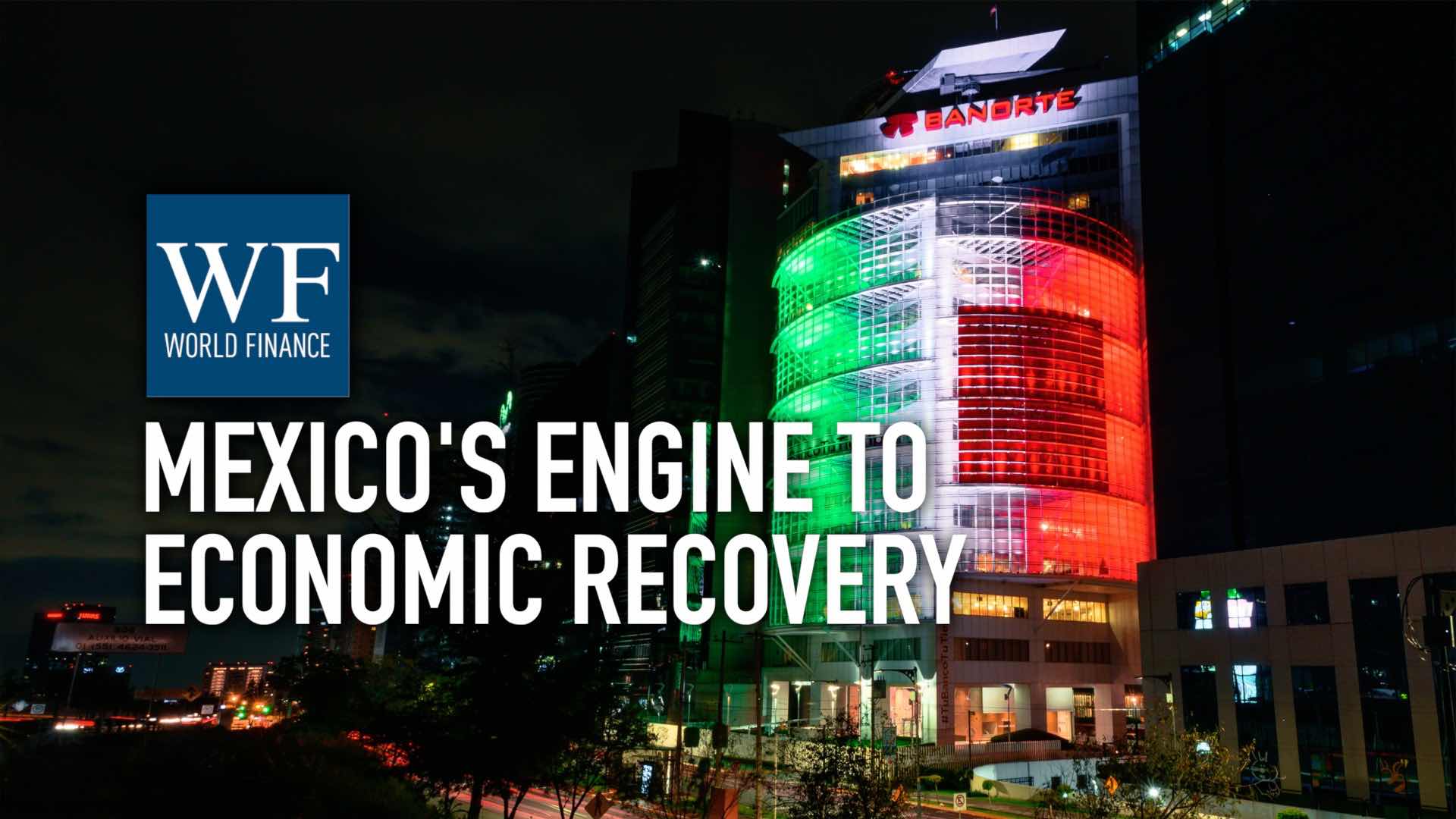David Suarez on Banorte’s acquisition of Afore Bancomer | Banorte Grupo Financiero | Video
World Finance interviews David Suarez, CFO of Banorte Grupo Financiero, on the strategic and transformative acquisition of Mexican insurance business Afore Bancomer
Related:
Transcript
Banorte, one of Mexico’s biggest banks, has acquired Afore Bancomer. This makes it the largest pension fund manager in the country, and the third-largest in Latin America. Chief Financial Officer David Suarez explains how the acquisition has had a transformative effect on the company, and how the bank’s strategy is based on Mexico’s changing demographics.
World Finance: How has this acquisition affected the company as whole?
David Suarez: Well, that acquisition has been both strategic and transformative. The reason for that is, the Mexican population is very young. And therefore there’s going to be a lot of young people entering the workforce in the next few years. This business, Afore, is the one that manages the retirement savings funds, and so therefore what you’re going to see is that the assets that we’re going to be managing over the next few years is going to accumulate substantially.
It’s also transformative because, with the acquisition of Afore Bancomer, the Afore becomes one of the most significant subsidiaries of the group. We became a very significant player in the market; we have now 28 percent of the market share, versus 17 percent of our nearest competitor, which is Banamex.
This business is going to continue consolidating, because of the way that the fees are charged. In terms of assets under management, right now the Afores in Mexico manage 12 percent of GDP in terms of assets, and in the next six to 10 years, that’s going to more than double. So, all of the long-term infrastructure projects and investments that are going to be done in Mexico are going to be done by the Afores, and Banorte’s going to be present in all those very significant infrastructure projects.
World Finance: What has been your strategy for success in Latin America?
David Suarez: Focusing on the Mexican market allows us to have incremental returns, because the expansion of credit in Mexico has been significant, and it will continue.
We are expanding our loan book, even in a very tough economic environment right now, by more than 10 percent. And we are expecting it to expand to levels of close to 20 percent as the economy improves, which we’re expecting that to happen next year.
So, overall being in Mexico has allowed us to become a much larger bank. In terms of other elements, well, we have been able to expand organically substantially. Our retail network has expanded to become the third-largest in Mexico. And actually, in ATMs and POSs, we are the second-largest in the country.
The other thing is that in the business segments, we have done acquisitions like the one that we discussed previously. That has also been a key ingredient of our success. The other one is as I mentioned at the beginning, being local. This has allowed us to take decisions in Mexico, which is not the case with some of our international competitors. So, those have been the main elements of our success.
World Finance: How has volatility in international financial markets affected your operations?
David Suarez: On the wholesale banking unit, we’ve been able to defend ourselves, and actually right now in Mexico, the interest rates have been coming down. They just came down last Friday, and there’s a possibility of an additional rate cut in October, so the Mexican yield curve is shifting, and there’s a lot of value now in the securities positions that we have. So, the impact was short-lived and was not very significant.
In terms of our retail operations, nothing has happened, and that’s because we are a local player. We continue to grow our consumer loan book significant. And we haven’t seen any of our clients retrench because of this volatility.
As you know Mexico’s very linked to the US, to the export cycle in the US, and the US economy is doing well. So, as long as the US economy does well, Mexico has the possibility to expand its GDP. So therefore the type of volatility that you’ve seen in foreign exchange in countries in other parts of the world initially happened in Mexico, but recently it’s been much calmer in the markets. Because people are now realising that even though Mexico is an emerging market, we’re very linked to the US cycle, and they’re positive about that.
World Finance: And what moves are you making towards greater financial inclusion?
David Suarez: We have a lot of contact points with the telecom telegraph company in Mexico that has more than 1,500 offices. We’ve also done agreements with 7/11, with extra stores that are also very significant small retailers in Mexico. In some cases in municipalities where there’s no banking presence, in order to be able to open deposit accounts, and also so that people can transact and not go to the branch.
Right now what we’re doing is, we’re also working with the Mexican public markets, especially in Mexico City. People there are very excited, because now they’re seeing that a lot of their clients that used to go to large retailers, because they were the ones that accepted these means of payments – credit and debt cards – now they’re coming back to the public markets. And the public markets in Mexico are part of the community.
We’ve also done many things in terms of financial education. We participate very thoroughly in Mexico’s financial education week. And additionally we have basic products, entry level products, like a credit or a debit card, where people can have a basic product that doesn’t charge any fees. So they’re not money-makers for us, but we know that as people start using them and they progress through their lives, they’re going to start using more sophisticated products.
So we have all those initiatives, and many others. But in the end what Banorte is trying to do is, we’re trying to get more people into the formal financial system.
World Finance: How significant is good corporate governance to a company like yours?
David Suarez: Well, Banorte is now the most public company in Mexico. We have 90 percent of our shares floated in the Mexican stock exchange, and we don’t have a majority shareholder. And so we have made a lot of advances in terms of adopting the best international practices in corporate governance. Right now our board – if you like at the composition – 67 percent of the board is independent. That is not only unique for Mexican companies, but it’s also unique to if you compare that to many companies in developed countries.
We also have more than 50 committees that support the board in its functions. We also have been making strides in terms of developing the protection of minority shareholders’ rights, so, for us corporate governance is a rule. We need to continue advancing, we know that we still have a lot of challenges, we have adopted of course all of the disclosure requirements of the Mexican regulator, and we follow that strictly. But we also know that many of our investors and many of our shareholders are asking for more thorough information on all of our daily operations.
So, we are going to continue advancing in terms of modernising all of our disclosure, our transparency policies. And additionally we’re going to continue trying to run the firm more professionally.
World Finance: And finally, how do you envisage the future for Banorte?
David Suarez: Banorte recently, just this past month of July, carried out an equity offering. We were able to under very tough market conditions obtain $2.5bn of equity that will allow us to grow into the future. And so therefore we now have the elements and the ingredients to be able to grow in the business segments that we’re trying to attack. Mainly consumer products, which are the ones that consume our capital.
We’re also undergoing a major transformation with an alliance that we’ve done recently with IBM. We’re going to overhaul all of our IT, all of our processes, and through that what we’re trying to do is become a more client-centric institution.
So what we’re trying to do, and this is how we envisage Banorte, is becoming a much more efficient bank, because we’re going to have more automisation, much quicker response to our clients, and also we see ourselves as a bank that is going to be more attentive to our clients’ needs, and therefore if you combine that efficiency and much better client service, we’re going to be a much more profitable bank.
World Finance: David, thank you.
David Suarez: Thank you very much.

 Banorte: Nearshoring trend could gain $168bn for Mexico over the next five years
Banorte: Nearshoring trend could gain $168bn for Mexico over the next five years Banorte: Banks must ignite a sustainable recovery for Mexico’s economy
Banorte: Banks must ignite a sustainable recovery for Mexico’s economy
